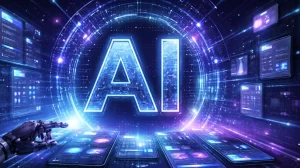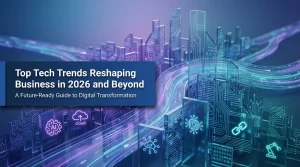
H-1B Visa Extension Rules and Eligibility in 2026: A Complete Guide
H-1B Visa Extension Rules and Eligibility in 2026: A Complete Guide Home H-1B Visa Extension Rules and Eligibility in 2026: A Complete Guide The H-1B
The education landscape has undergone a dramatic transformation in recent years, with digital learning and online examinations becoming mainstream. However, this shift brought new challenges — from ensuring academic integrity to managing large-scale assessments efficiently. That’s where Artificial Intelligence (AI) steps in.
AI-driven exam monitoring and assessment tools are revolutionizing how exams are conducted, evaluated, and secured. By combining automation, data analytics, and computer vision, AI ensures fairness, accuracy, and accessibility across various education systems and professional testing environments.
In this blog, we’ll explore how AI is transforming exam monitoring and assessments, its benefits, key technologies involved, and what the future holds for AI-driven education.

Traditional exams required in-person invigilators to monitor students, verify identities, and prevent malpractice. With the rise of remote learning and online test platforms, this model became impractical.
Institutions began adopting AI proctoring systems that use machine learning algorithms to detect suspicious behavior and maintain the integrity of online exams.
AI monitoring doesn’t just replicate human invigilation — it enhances it. From verifying identities through facial recognition to tracking eye movements, background noise, and multiple screen usage, AI ensures that examinations are conducted under secure and fair conditions, even remotely.
AI-based exam monitoring combines several technologies to create a seamless and secure testing experience. The process typically includes:
Before an exam begins, AI verifies the candidate’s identity using facial recognition, document scanning, and biometric validation. This eliminates impersonation and ensures that only authorized students can access the test.
During the exam, AI tools analyze candidate behavior using computer vision and audio analytics. It can detect eye movement patterns, background noises, body posture changes, and even if a candidate leaves the test window.
If AI identifies unusual activity — like multiple people appearing in the frame, switching tabs, or speaking during the test — it flags these events in real time for review by human proctors.
After the test, AI generates a detailed report highlighting potential red flags and provides insights on overall test integrity. This hybrid model allows human invigilators to make the final call based on AI’s findings.

While monitoring ensures exam security, AI-driven assessment systems enhance how tests are graded and analyzed. Traditionally, grading large volumes of tests — especially descriptive answers — was time-consuming and prone to human bias.
AI automates the grading process by analyzing text patterns, keywords, logical structure, and conceptual understanding. Natural Language Processing (NLP) models can evaluate essays, short answers, and open-ended responses just as effectively as objective questions.
AI-powered systems detect and prevent cheating, impersonation, and unauthorized access — maintaining exam credibility.
Institutions can conduct large-scale online exams simultaneously across the globe without compromising security or fairness.
AI reduces administrative efforts in invigilation and grading, saving time and operational costs for institutions and organizations.
AI eliminates grading inconsistencies caused by fatigue or human bias, ensuring every student is assessed purely on merit.
Students can take exams from any location, and AI ensures equitable access through multilingual support and adaptive interfaces for differently-abled candidates.
AI analytics helps educators and organizations identify trends in learning behavior, predict future performance, and make informed curriculum decisions.
While AI offers immense potential, its implementation in exam monitoring and assessments comes with challenges that must be addressed responsibly.
AI systems often require webcam access, screen monitoring, and biometric data — raising privacy and data protection issues. Transparency in how data is collected and used is essential.
AI models are trained on data that may carry inherent biases, potentially leading to unfair results. Continuous auditing and human oversight are crucial to maintaining fairness.
Technical glitches, poor internet connectivity, or software errors can disrupt exams. A robust backup mechanism and hybrid human-AI monitoring are necessary.
Continuous camera monitoring and automated alerts can make students feel anxious or uncomfortable. Designing empathetic AI systems that respect privacy and emotional well-being is key.

AI’s role in exam monitoring and assessment is still evolving. The future promises even more advanced capabilities powered by generative AI, emotion recognition, and predictive analytics.
Key Future Trends
As education continues to digitize, AI will play a pivotal role in creating secure, fair, and intelligent testing ecosystems.
Conclusion
The role of AI in exam monitoring and assessments goes far beyond automation — it’s about enhancing trust, efficiency, and inclusivity in the education system.
By leveraging advanced technologies like machine learning, computer vision, and natural language processing, AI ensures integrity in examinations while enabling faster, more accurate evaluations.However, human oversight remains essential. The future of assessments lies in a collaborative human-AI approach that combines technology’s precision with human judgment and empathy.
AI has already redefined how exams are conducted and evaluated — and as innovation continues, it will reshape the entire learning journey from preparation to certification.

H-1B Visa Extension Rules and Eligibility in 2026: A Complete Guide Home H-1B Visa Extension Rules and Eligibility in 2026: A Complete Guide The H-1B

What Is AI’s Biggest Impact on Modern App Development? Home AI’s Biggest Impact on Modern App Development In the last decade, app development has transformed

Top Tech Trends Reshaping Business in 2026 and Beyond Home Top Tech Trends Reshaping Business in 2026 and Beyond Technology is no longer a backstage
Give us a call or fill in the form below and we’ll contact you. We endeavor to answer all inquiries within 24 hours on business days.